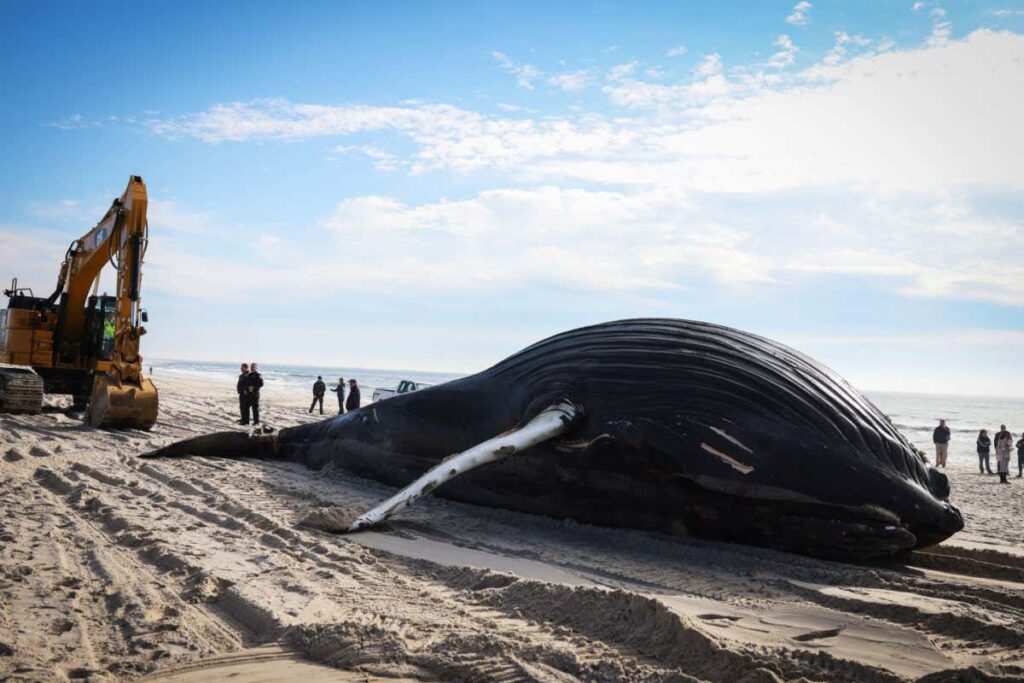Why do whales beach themselves?

The phenomenon of whales beaching themselves, where these magnificent marine creatures strand themselves on shorelines, continues to be a perplexing and tragic occurrence that has intrigued scientists and the public for decades. While numerous theories exist, the precise reasons behind why whales beach themselves remain complex and multifaceted, often lacking a definitive explanation.
More than one species of whale
Beaching events involving various species of whales, such as pilot whales, sperm whales, or dolphins, can range from solitary incidents to mass strandings involving multiple individuals. Understanding the motivations driving these animals to beach themselves involves a combination of factors, including environmental, biological, and social elements.
Annually, approximately 2,000 whale beaching incidents happen globally, mostly leading to the demise of the animal.
In some cases, orcas intentionally beach themselves to prey on shoreline seals, relying on waves to return to the sea. This behavior is commonly observed in pods around Argentina, believed to be passed down from older to younger members of the pod. Unintentional beachings among orcas are exceedingly rare.
Certain species of whales and dolphins are more susceptible to mass beachings, notably toothed whales (Odontoceti). Toothed whales encompass dolphins, porpoises, and all whales with teeth. These cetaceans typically exhibit intricate social structures and often live in large groups. When one member of the group is distressed or unwell, its distress signals may prompt others to follow, leading to a collective stranding
Navigational errors
One prevalent theory is that whales might inadvertently beach themselves due to navigational errors. Whales rely on an intricate system of echolocation and magnetic fields to navigate the vast oceanic expanses. Disorientation caused by various factors, such as geomagnetic anomalies, disruptions from human-made sonar or noise pollution, changes in tidal patterns, or geographical irregularities, might lead whales off course and towards shallow waters.
Whale Stress and Sonar
Social dynamics within whale pods could also contribute to mass strandings. Whales are highly social animals, often exhibiting strong social bonds within their pods. When a member of the group is in distress or disoriented and heads towards shore, others might follow, out of a sense of social cohesion or confusion, ultimately leading to a mass stranding event.
Some scientists posit that sonar signals and various other loud noises generated by human activity underwater might contribute significantly to the phenomenon of beaching events. Specifically, militaries employ low and mid-frequency active sonar for submarine detection and acoustic exercises.
While these frequencies may not affect all marine species uniformly, they can prove fatal for certain ones. Exposure to low-frequency sonar can induce hemorrhaging in animals, prompting some to beach themselves in a desperate attempt to evade the distressing sound.
Conversely, mid-frequency sonar poses a particularly grave threat to Cuvier’s beaked whales, triggering decompression sickness characterized by tissue damage from gas bubble lesions. This distressing condition arises as a result of the whales panicking due to the sonar signals and surfacing too rapidly in an attempt to escape. It’s worth noting that instances of mass beachings involving beaked whales predominantly coincide with periods of sonar testing activities.
Health issues
Another possible explanation revolves around health issues or injuries. Sick, injured, or disoriented whales might seek shallow waters as a result of their compromised physical state. These whales could be attempting to alleviate discomfort, find refuge, or even succumb to their injuries.
The exact reasons for whale beaching events remain enigmatic and continue to be an area of ongoing research and investigation. Furthermore, the complexity of these incidents often involves a combination of multiple factors rather than a singular cause.
Human activities and environmental changes also play a significant role in beaching events. Factors such as pollution, climate change, changes in oceanic temperatures, and disruptions in the natural ecosystem due to human interference can affect the whales’ habitats and food sources, potentially leading to increased stress and health issues among populations.
More research needed on whale beaching
Efforts to mitigate and respond to whale strandings involve a collaborative approach among scientists, conservationists, and rescue teams. When beaching events occur, immediate responses involve assessing the health of the stranded whales, providing supportive care, and attempting to refloat them to the safety of deeper waters.
These rescue attempts are challenging and can be met with various obstacles, as the physical and psychological stress on the stranded whales might already be substantial by the time they are discovered.
The reasons behind why whales beach themselves remain a complex and multifaceted issue. Various theories, including navigational errors, social dynamics, health issues, human interference, and environmental changes, contribute to these distressing events.
Understanding and addressing the complexities surrounding whale strandings are essential for both their conservation and the broader ecological health of our oceans. Continued research, conservation efforts, and environmental stewardship are fundamental in minimizing the occurrence of these tragic events.










